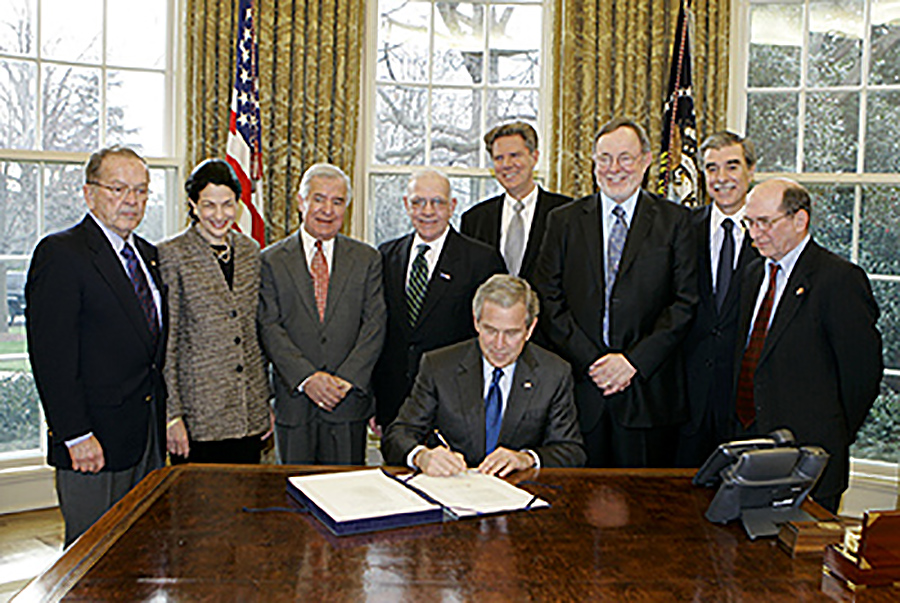Historic Anniversary for Fishing in America's Oceans

Signing the MSA
It's hard to get politicians to agree on anything these days. But five years ago this month, President George W. Bush, flanked by Republican and Democratic members of Congress, signed the reauthorization of the Magnuson-Stevens Fishery Conservation and Management Act (MSA).
This moment of bipartisanship was good news for our nation's marine species and those who rely on them for a living. Lawmakers agreed to both stop and prevent overfishing by incorporating strong, new conservation measures into law, namely the requirement to set science-based, enforceable catch limits on all federally managed ocean fish.
Many stakeholders had insisted this could never be done, and if you look at the history of the MSA, you will understand the skepticism. We can thank the foresight and leadership of the White House and members of Congress, particularly President Bush and the late Sen. Ted Stevens of Alaska, for this accomplishment. They made sure that the MSA reauthorization included firm deadlines for mechanisms to end overfishing. These requirements drove managers from the National Marine Fisheries Service and the eight regional fishery management councils to work together to get the job done. Now, five years later, we are on the cusp of having science-based limits around the country that guard against overfishing. While this will be a truly historic management milestone, we must remain vigilant to ensure that our stocks continue down the path toward long-term sustainability.
Remember that there are times when we can come together for the common good.- Lee Crockett, director of U.S. Ocean Conservation
As you read the news about the latest debates in Washington, just remember that there are times when we can come together for the common good. Let's keep working for the well-being of our nation's ocean fish populations and fishermen by continuing to support the MSA's conservation requirements.
This article originally ran at newswatch.nationalgeographic.com.
View our timeline of fisheries management milestones:






